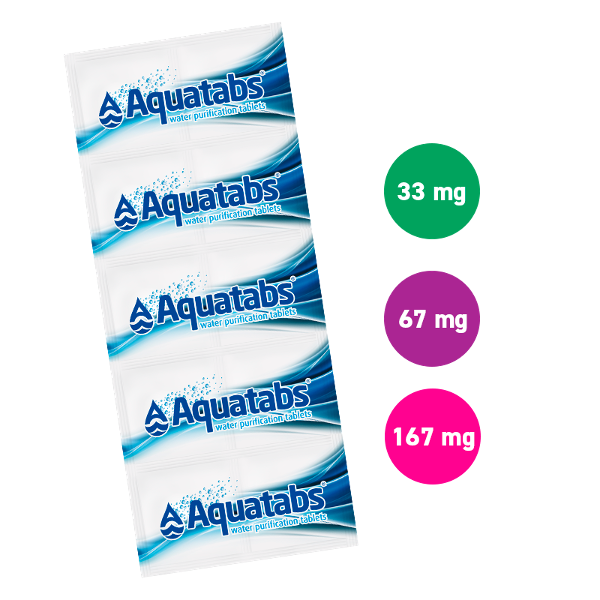Diarrhea and dehydration

EFFERVESCENT CHLORINE TABLETS (NADCC)
- 67 mg tablet
- Point-of-use water treatment
- For a healthy population over 2 years old
The simple and effective solution for disinfecting water unfit for consumption
Description
Aquatabs® tablets provide targeted and effective protection against certain bacteria and viruses.
1 tablet of 67 mg potabilises 20 litres of water (10 litres in the case of turbid water).
Recommended dosages
Tablets are available in packs of 10 tablets in different formats depending on the volume and nature of the water to be treated (measured in particles per million – ppm).
| Total weight of a tablet | 55 mg | 170 mg | 334 mg |
|---|---|---|---|
| Weight of active substance in a tablet | 33 mg | 67 mg | 167 mg |
| Residual chlorine content | 21,3 mg | 43,2 mg | 107 mg |
| % of active substance | 60 % | 39,4 % | 50 % |
| Concentration level per dose (mg/l; ppm) | Water volume per individual tablet | ||
| 1 ppm (creation of residual chlorine for clear water conveyed) | 20 | 40 | 80 |
| 2 ppm (creation of residual chlorine for clear underground water) | 10 | 20 | 40 |
| 5 ppm (creation of residual chlorine for turbid water) | 5 | 10 | 20 |



